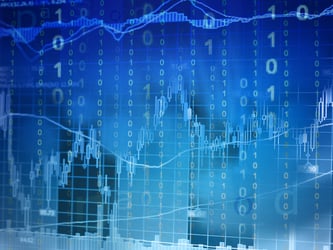Nasdaq.com – New York – Many factors have contributed to the volatility that has consistently plagued the financial markets since the beginning of the year— global economies collapsing, shifts in the cost of oil, and the Federal Reserve raising interest rates at the end of 2015. And now we throw an election year in the U.S. into the mix.
If you’ve been following the Presidential campaign, you’re aware that uncertainty and surprise are key elements defining this political year. We started off with an unprecedented 17 candidates in one party alone and are now down to real estate businessman Donald Trump as the presumptive nominee for the Republican Party. On the other side of the house, Former Secretary of State Hillary Clinton is still battling for Democratic votes against Senator Bernie Sanders, but it looks likely that Trump and Clinton will both lock up their delegate counts by the California primary on June 7th. That leads us to the big question: “What will these nominees mean for the markets?”
While Clinton is a well-known entity, she will likely not receive the enthusiasm that President Obama did when he entered office eight years ago. And Trump is still viewed as a wildcard, both domestically and internationally, therefore it’s anyone’s guess on how he will be perceived globally. Market volatility will continue but things might calm down toward the end of the summer as investors feel more comfortable with the candidates and their platforms.
At that point, people will be interested in how the next American president will affect the markets for the next four years. Ultimately, it may come down to which sectors investors believe will do well under each candidate’s leadership.
We know that Clinton supports healthcare, in the form of keeping and improving President Obama’s Affordable Care Act, and that she’s not a proponent of the coal industry. With Trump’s background in real estate, he may be a big supporter of construction and housing. Other than that, there is a lot of uncertainty across both candidates, and investors don’t like uncertainty.
Investing tycoon Warren Buffet has endorsed Clinton, yet the town of Greenwich, CT, home to many large hedge funds and financial companies, voted at a much higher proportion for Trump than they did for Clinton. This can turn into a very polarizing election for the U.S.
Many are concerned that there are parallels to the 1968 election, when the Republican nominee, former Vice President Richard Nixon, won the election over the Democratic nominee, incumbent Vice President Hubert Humphrey and Independent candidate, George Wallace. The 60’s were defined by social issues, and these issues led to contentious debates and a feeling of hopelessness from the American people. The markets were near an all-time high at the start of the’68 campaign season. They started to falter as the U.S. neared Election Day, but by the end of the year moved into a significantly prolonged bear market. If that happens this time around, commodities, energy and gold mining could become hot again. Expect oil prices, fracking and taxes to be touched on when the candidates start the Presidential debates.
All in all, it’s unlikely that an election season so full of surprises and uncharted territory will stabilize the markets just yet. For now, the best any of us can do is watch and wait.













